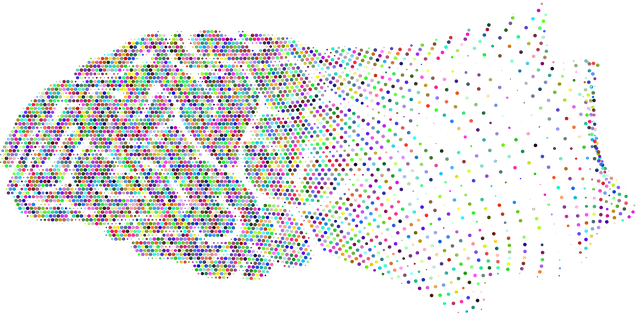Greenwood Village Conduct Disorder Therapy takes a comprehensive approach to combat substance abuse, addressing underlying conduct disorders and their societal impact. By identifying risk factors, including genetic predispositions and environmental triggers, therapists employ evidence-based practices for crisis intervention. This program focuses on early prevention, emotional well-being promotion, and mindfulness meditation to build resilience. Through tailored strategies, lifestyle changes, and mental wellness coaching, Greenwood Village equips individuals with skills to resist peer pressure and make healthier choices, significantly reducing the risk of substance abuse. Community support and policy interventions, such as innovative programs offered by Greenwood Village, play a pivotal role in effective risk reduction strategies targeting this multifaceted issue.
Substance abuse poses significant risks to individuals, families, and communities. This article delves into comprehensive risk reduction strategies to mitigate the devastating impact of substance misuse. We explore key factors contributing to conduct disorders, such as genetic predisposition and environmental influences, offering insights through the lens of Greenwood Village Conduct Disorder Therapy. Additionally, we discuss lifestyle modifications, community support, and policy interventions that can effectively prevent and address substance abuse.
- Understanding Substance Abuse and Its Impact
- Identifying Risk Factors and Early Warning Signs
- Greenwood Village Conduct Disorder Therapy: An Approach to Prevention
- Lifestyle Changes and Coping Strategies for High-Risk Individuals
- Community Support and Policy Interventions for Effective Risk Reduction
Understanding Substance Abuse and Its Impact

Substance abuse is a complex issue that affects individuals across all demographics, often stemming from underlying mental health conditions like conduct disorder. Greenwood Village Conduct Disorder Therapy focuses on addressing these root causes, providing a holistic approach to treatment. Understanding substance abuse involves recognizing its far-reaching impact not just on the abuser but also on their families and communities. The consequences can be severe, encompassing physical health deterioration, social isolation, and legal troubles, among others.
Risk assessment plays a pivotal role in crisis intervention guidance, helping mental health professionals identify vulnerable individuals early on. By utilizing evidence-based practices and incorporating Crisis Intervention Guidance, therapists can offer targeted interventions to mitigate risks and promote positive outcomes. Prioritizing mental wellness through these strategies not only aids in substance abuse prevention but also contributes to the overall resilience of individuals and communities.
Identifying Risk Factors and Early Warning Signs

Identifying risk factors is a crucial step in preventing and reducing substance abuse. Several elements can contribute to an individual’s vulnerability, including genetic predispositions, environmental influences, and underlying mental health conditions. For instance, those with a history of conduct disorder may be at higher risk, as they often struggle with impulse control and aggressive behavior. Early intervention is key; recognizing warning signs such as mood swings, withdrawal from social activities, or declining academic performance in adolescents can prompt individuals to seek help before substance abuse takes hold.
Greenwood Village Conduct Disorder Therapy emphasizes the importance of understanding these factors. By identifying risk indicators early on, therapy can be tailored to address specific needs, incorporating techniques like emotional well-being promotion and mindfulness meditation as part of a comprehensive self-care practice. These strategies not only support individuals in managing their conditions but also empower them with tools to enhance resilience and make healthier choices.
Greenwood Village Conduct Disorder Therapy: An Approach to Prevention

Greenwood Village Conduct Disorder Therapy offers a proactive approach to prevent substance abuse by addressing its root causes. This therapy focuses on individuals with conduct disorder, targeting aggressive or antisocial behaviors often associated with higher risks of drug and alcohol misuse later in life. By implementing evidence-based strategies, such as self-awareness exercises and emotional intelligence training, the program aims to develop healthier coping mechanisms and improve overall mental wellness.
The therapy incorporates various techniques from mental wellness podcast series production, encouraging participants to explore their thoughts, emotions, and behaviors. Through these engaging activities, individuals gain a deeper understanding of themselves, learn to manage their impulses, and build resilience against peer pressure. By fostering emotional intelligence, Greenwood Village Conduct Disorder Therapy equips young people with essential life skills to make healthier choices, thereby reducing the risk of substance abuse.
Lifestyle Changes and Coping Strategies for High-Risk Individuals

For high-risk individuals grappling with substance abuse, making significant lifestyle changes and adopting effective coping strategies is a pivotal step toward recovery. Greenwood Village Conduct Disorder Therapy emphasizes holistic approaches to address underlying issues contributing to substance misuse. This can involve personal reflection and embracing healthier habits, such as regular exercise, balanced nutrition, and sufficient sleep. Engaging in activities that foster inner strength development, like mindfulness practices or creative pursuits, can help manage cravings and reduce triggers.
Incorporating evidence-based mental health education programs design tailored for at-risk populations is another powerful tool. These programs educate individuals about the risks associated with substance abuse, equip them with coping mechanisms, and promote a deeper understanding of their mental wellness. Additionally, accessing mental wellness coaching programs development can provide ongoing support, accountability, and strategies to navigate challenges effectively. Such interventions empower high-risk individuals to make positive choices, build resilience, and cultivate lasting recovery.
Community Support and Policy Interventions for Effective Risk Reduction

Community support and policy interventions play a pivotal role in effective risk reduction strategies for substance abuse. Strong community networks can provide individuals at risk with essential resources, support systems, and safe spaces. Programs like Greenwood Village Conduct Disorder Therapy focus on empowering communities to address underlying issues contributing to substance misuse. By fostering connections between residents, these initiatives promote positive peer influence and enhance overall mental wellness.
Policy interventions, including legislative changes and regulatory frameworks, are crucial in creating an environment that discourages substance abuse while ensuring access to quality healthcare. Training for healthcare providers on cultural competency can significantly improve the delivery of care, especially when addressing disparities related to conduct disorder and other mental health concerns. This holistic approach, combining community engagement and policy reform, is essential in reducing risks associated with substance abuse.
Substance abuse is a complex issue that requires a multifaceted approach to effectively reduce risks. By understanding the impact of substance abuse, identifying risk factors, and implementing strategies like Greenwood Village Conduct Disorder Therapy, communities can significantly prevent and mitigate this challenge. Lifestyle changes, community support, and policy interventions play crucial roles in fostering environments that discourage substance abuse and promote well-being. Through a combined effort, we can create safer, healthier communities for all.










